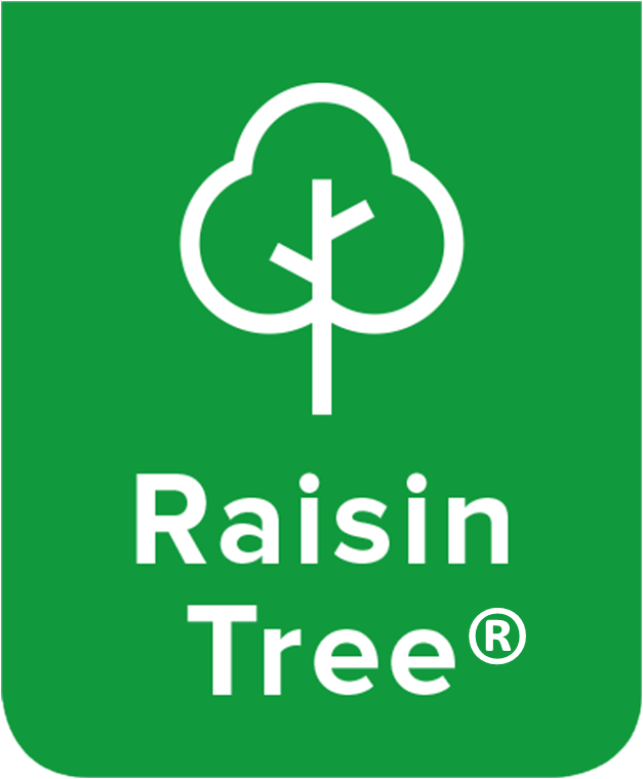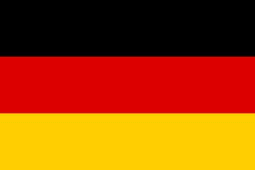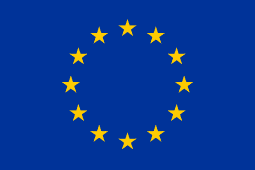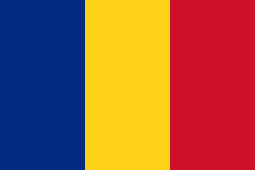A dietary supplement recently available to western markets
A dietary supplement recently available to western markets, provides an almost perfect prevention for hangovers with zero side effects. Investigative research has discovered that Dihydromyricetin (DHM), sometimes called Ampelopsin or Ampeloptin, produces tangible results when compared to other so-called hangover cures and potions.
Studies have been ongoing since 2007 and even double-blind tests have been met with the same remarkable results, near zero side effects from binge drinking and importantly, a reduction in a desire to drink. Dihydromyricetin is a flavinol of an ancient tree that continues to show counteractive effects of acute alcohol (EtOH) intoxication.
Where is Dihydromyricetin (DHM) From?
Dihydromyricetin is from the Hovenia Dulcis Thunberg, a herbal plant (tree), belonging to the Rhamnaceae family, widespread in west Asia, USA, Australia and New Zealand, but still almost unknown in European countries. Traditionally, Dulcis extract has been used for hangovers and the treatment of liver problems; it was first mentioned in The Compendium of Materia Medica or Bencao Gangmu (Chinese: 本草綱目) a Chinese herbology volume written by Li Shizhen during the Ming dynasty; its first draft was completed in 1578 and printed in Nanjing in 1596. It is a work that lists the materia medica of Chinese medicine known at the time.
In China, Dihydromyricetin is commonly known as Teng Cha and is sold and used as a herbal remedy to alleviate fevers, drunkenness, cure rheumatism, strengthen physique, kidney diuresis, and many other functions.
Hovenia Dulcis possesses several properties, such as antidiabetic, anticancer, antioxidant, anti-inflammatory and hepatoprotective, especially in the hangover treatment, validating its use as a herbal remedy in the Chinese Traditional Medicine. Recently Dihydromyricetin treatment was also shown to be anxiolytic, meaning that it reduced anxiety.
Today, research continues in the western world in order to update phytochemistry, biological activities, nutritional properties and toxicological characteristics and regulatory classification of Hovenia Dulcis extract for its use in territories that include the European Union.
Dihydromyricetin Solubility and Stability
Dihydromyricetin, as a substance, is easily soluble in hot water. It is stable in heat, but when heated to 100℃ or above, it is irreversibly oxidized. The substance is stable in acidity and neutral.
What Studies Prove Dihydromyricetin is an Effective Hangover Cure?
Although Dihydromyricetin has been used for centuries for alcohol and other treatments, more recently worldwide studies have been conducted on animals and humans.
Atypical Human Trials
98% pure dihydromyricetin was administered to humans at the dosage rate of 5mg. Alcohol was administered orally as vodka mixed with orange juice at the rate of 12.7ml per 220-pound 20-year-old male. The men were placed in a room with friends and acquaintances in a lab decorated to mimic living room setting, complete with food and a television.
The first test involved consumption of alcohol at the rate of seven doses followed by a 150mg dose of Dihydromyricetin. Within 30 minutes the test subject felt able to reason and within an hour felt completely sober, but still sleepy.
The second test involved ten doses of alcohol/EtOH followed by a 250mg dose of Dihydromyricetin. Within 30 minutes the test subject felt only vaguely better, within an hour noticed feelings of clarity, within 1.5 hours felt like they were sobering up, at two hours they felt clearer and better (blood alcohol test shows 0.03%), and finally 2.5 hours later, felt close to baseline and sober (blood alcohol test shows 0.01%).
The third test involved four doses of alcohol followed by 450mg of Dihydromyricetin. Within 30 minutes the test subject felt slightly drunk, but clear. At an hour they reported that Dihydromyricetin had greatly reduced their desire and capped it to four drinks. At only an hour later they felt completely sober and free from intoxication.
The fourth test involved six doses of alcohol followed by 450mg of Dihydromyricetin. After 30 minutes the test subject felt like they were sobering up. After an hour they felt completely sober. And at 1.3 hours later they felt hungry. Though at 1.5 hours they felt nauseated from over eating.
The tests are conclusive evidence that Dihydromyricetin does affect a person’s ability to become intoxicated, desire alcohol, and sober up after alcohol consumption. It is important to state at this time, Dihydromyricetin does not reduce blood alcohol levels. Never Drink and Drive.
Is it safe for human consumption?
David Nutt, the former head of the advisory on drugs of the British government, stated that the data already gathered on the study involving animals as subjects would have the same results on humans. He also stated, the fact that the Hovenia Dulcis extract has been used widely in Asia for 600 years without concern, unquestionably answers any concerns.
…Dr Jing Liang, a pharmacologist who led the research team in the University of California, Los Angeles that spearheaded the first testing of the effects of Dihydromyricetin on humans, stated Dihydromyricetin does not carry side effects.
Researchers Concerned Over Drug Leading to More Drinking Rather Than Less
Philosophers have been concerned that an ‘alcohol antidote’ would entice people to consume alcohol and then count on being able to terminate the intoxicating effects on demand,” said Markus Heilig, clinical director of the U.S. National Institute on Alcohol Abuse and Alcoholism.
He however concluded, for those struggling to overcome an alcohol addiction — not to mention those affected by the accidents constantly caused by those who’ve had too much to drink, Dihydromyricetin presents a real opportunity to withdraw and recover from addiction.
Using Dihydromyricetin to Fight Alcohol Use Disorder (Alcoholism)
Alcohol use disorders are the most common form of substance abuse, with the World Health Organization revealing that the condition affects more than 76 million people worldwide. Shockingly, harmful use of alcohol results in 2.5 million deaths annually.
In the United States alone, more than 15 million Americans are dependent on alcohol, and 500,000 of those people are between the ages of 9 and 12 years old!
Only an estimated 13 percent of people identified as having an alcohol use disorder receive medical treatment, partly due to a lack of effective medications without major side effects.
In 2008, Dihydromyricetin was approved by the Korea Food & Drug Administration to help liver recovery among people who abuse alcohol. This has increased interest in the extract, both in alternative and mainstream health circles, with the hope that it may be the new and more effective means of treating those with alcoholism that the western world needs. The human trails mentioned earlier in this article point to even more positive signs of Dihydromyricetin becoming a potential treatment for alcoholism.
Dihydromyricetin and The Liver
There have been several in-depth studies on the effect that Dihydromyricetin can have on the liver (mostly as a hepatprotective against alcohol damage to the liver).
One study by Jian Xi & her team called “Effect of juice and fermented vinegar from Hovenia Dulcis peduncles on chronically alcohol-induced liver damage in mice” showed that Hovenia Dulcis extract has a significant protective effect against alcohol-induced liver damage.
A separate study showed that dihydromyricetin also can reduce injuries already caused to the liver.
Essentially, Dihydromyricetin can work to both protect your liver while you drink (if taken beforehand), while also helping to repair damage caused to your liver after one-too-many nights out on the town.
Recommended Dosage
An alcohol extract of 125mg per kg of bodyweight has been used with efficacy, which translates to an estimated human dosage of:
- 1,400mg for a 150lb person
- 1,800mg for a 200lb person
- 2,300mg for a 250lb person
These are projected human maximum doses based on research studies.
Raisin Tree™ is 100% pure, organic extract from the Hovenia Dulcis tree. Importantly, we never dilute our product by adding secondary low cost fillers, vitamins, or minerals.
International Health Authority Protocol
Raisin Tree™ promotes Dihydromyricetin (DHM) worldwide and strictly adheres to each country’s regulations regarding advertising and recommended use of the product.
Not all Regulatory Agencies categorize traditional herbal medicinal products equally. In certain countries, when a health condition is classified as an illness, injury, or impairment, it is decreed that the condition must be treated with a contemporary approved 'medicinal' product. For example, a ‘hangover’ is classified as a 'medical' condition in many countries. Dihydromyricetin (DHM) is not registered as a ‘medicinal’ product in all territories, therefore Dihydromyricetin (DHM) should not be advertised as a treatment or cure for ‘medical’ conditions in those countries specified. Furthermore, no company selling Dihydromyricetin (DHM) from any country outside its own dominions should share details with the public regarding relevant scientific research.
You are advised to check with your doctor if you choose any health supplement that is not registered as 'medicinal' in your own country, to treat illnesses, injuries, and impairments.
It remains your decision as to what procedure you choose to relieve or support any health condition. For this reason, we encourage you to investigate and understand the proven benefits of Raisin Tree™ Dihydromyricetin (DHM) for yourself.






